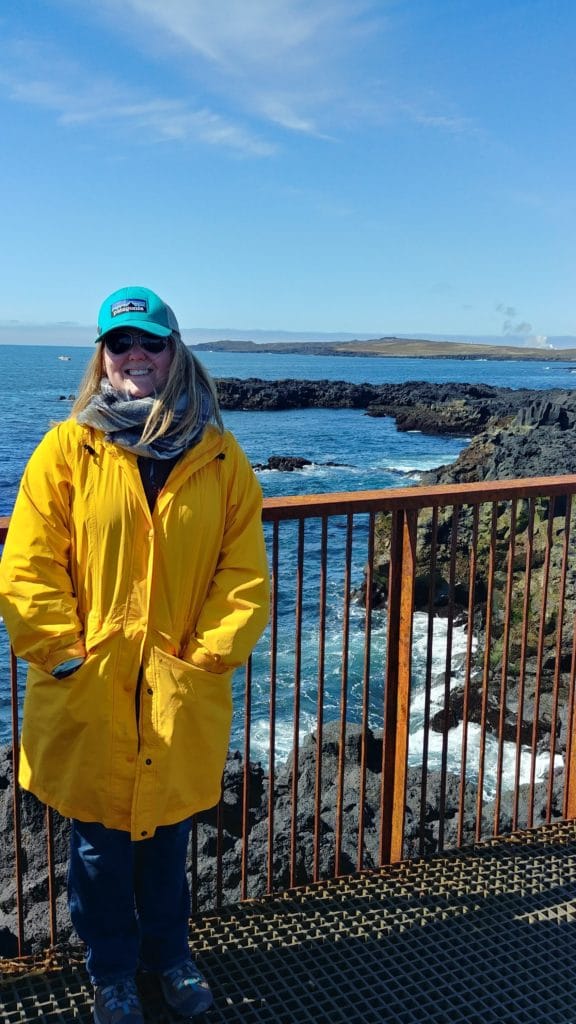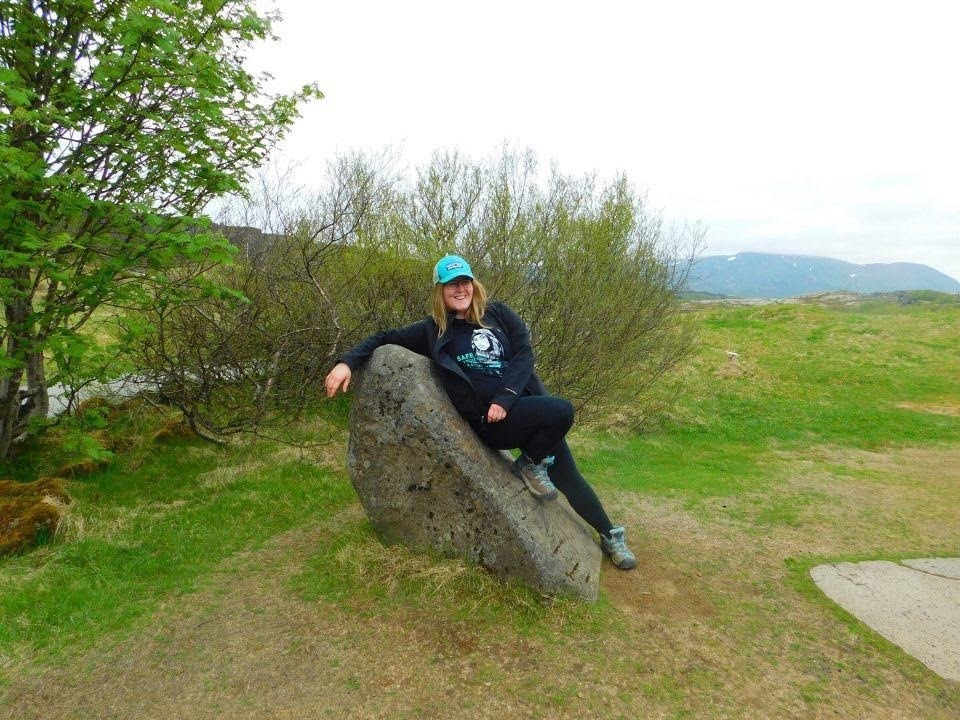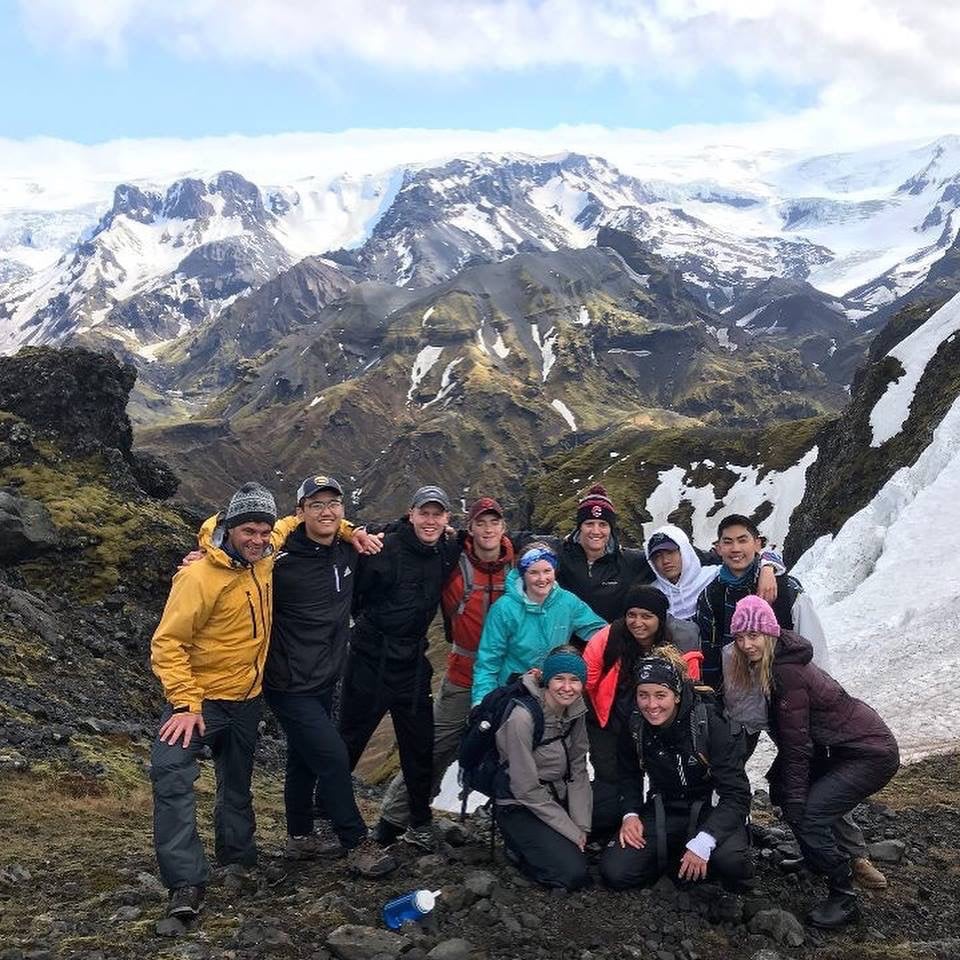My name is Zoé. I’m a 2018 TGP alumna who never had the money or the time for a semester of study abroad. I know universities say you can always find a way to make study abroad work, you can find the money, take a light semester, and so on, but that just wasn’t in the cards for me. 4 years of university was the max money-wise. I heard about TGP, and sure, it sounded like me, but there was no way I could scrape up a few grand to go.
And then? Magic happened. I’m not a big believer in miracles, but a professor I am close to heard about the program and wanted me to go. I wrote a statement of the program’s expected benefit to my career and academics, and we found the funding through my department and an additional university fund that allowed me to only need to pay for insurance and a flight.
I never even knew money for things like this was out there. This got me thinking, how many other students are there like me? Those who love to travel and have new experiences and learn, but couldn’t find the money?
In Iceland, I met fantastic people who I’m still in touch with. We learned together about energy, sustainability, and experienced the wonder of the Icelandic outdoors. We even bought one of Iceland’s trademark wool sweaters that we send around to each other as a way to stay in contact and up to date on each other’s lives. TGP was what I needed to stay passionate about sustainability in today’s world, and it changed my life.
Which brings us to this guide. With the help of TGP, I’ve put together information on types of funding, how to find it, and how to ask for it. It might take some work, but this is worth it; we swear.

Types of Funding
Funding can come in all sorts of flavors, but there are two main categories we will focus on today. University funding is considered to be any aid that comes through your university in some form, whether that be departmental aid, study abroad aid, student group funding, or university-specific financial aid. Federal aid is just that – financial aid through the U.S. federal government that you are applying toward study abroad.
University
While we focus on three types of aid here, it is also important to note that you may be able to leverage university-based financial aid for study abroad. Please reach out to your financial aid office and study abroad department for more help with this, as it varies between universities.
Departmental
Reaching out to your department is a crucial first step, particularly if you have a small department or already know they have some sort of study abroad money available. My funding came as a result of talking to my professor, who also happened to be my department head. You can start by asking the administrative aide in the department’s office or reaching out to a professor in the department. Be ready to explain why you are looking for funding and what TGP could do to bolster your academics and future career. Additionally, be prepared to explain what you can offer other students when you return. For example –
“I’m currently interested in attending The GREEN Program’s summer Peru trip. Given my academic focus on sustainable water systems, Peru could help me to form a better knowledge base and gain experience in a developing nation. I believe that funding from the Civil Engineering department could help make my trip possible and would allow me to be an asset for students with similar interests when I return, and I would be willing to present my experience.”
Study Abroad Office
While your study abroad office may not initially know what TGP is, they might still be willing to allocate funding for you (or help you find it in other places) once you explain what it is and its benefits. Again, it is critical to ask. If you can, look at their website beforehand and see what scholarships or other funding they might offer, and see if any might apply to you. If the program must be university-recognized, find out what that process looks like and if you can initiate it. Going in with a plan will go a long way, as they will want to see that you have thought about credit transfer, a budget for your trip, how the experience will play out in your academics, etc. For example –
“I’m working on locating funding for The GREEN Program’s winter Nepal trip. I have a great interest in working on microgrids once I am done with school, so their program could give me some insight I’m currently unable to get on campus. My department is willing to cover a portion of the fee, however, I am hopeful that studying abroad may be able to help me find additional funds to cover the rest of the costs. I noticed that funded programs must be university-recognized and am hoping we can initiate this process today.”

Student Organizations
Most students are involved with some kind of student organization, and many organizations have an allowance in their budget for student opportunities. I am involved with my university chapter of the Society of Women Engineers, and we have an allowance for conferences and research symposiums that students can request to utilize. In many cases, this means reaching out to your president or treasurer and asking what is available. From there, you can look at what needs to be done to gain access to these funds. Even a few hundred dollars can help on the funding journey. For example –
“Hi [Contact Name], I am hoping to pursue a study abroad opportunity in the near future with The GREEN Program. As a result, I am seeking out funding opportunities. Does our organization have any allowance for student development opportunities? If so, what is the process for accessing this funding? Once I return, I am willing to present at a general meeting and/or send out a message to the chapter about my experience.
Thanks, Zoé”
Federal Aid
In 1992, the Higher Education Act stated that students can receive financial aid for study abroad costs so long as the student is enrolled in a program approved by the home institution. Many types of aid can be applied to both regular semester credits and study abroad, such as federal loans and certain grants. There are also scholarships and programs explicitly for study abroad, although these have some more stringent requirements and may require that you be studying for a summer or full semester. You can reach out to your financial aid office to see if using your federal aid is an option for you. Keep in mind that applying federal aid to a study abroad program may impact how much aid you have available for the next semester.

Other Types of Aid
Additional forms of funding and aid do exist, such as reaching out to groups you may be involved with outside of school, maybe an employer or a rotary club. Additionally, TGP has a collection of scholarships available for students, such as The GREEN Scholarship. You can learn more at thegreenprogram.com/scholarships.
Crowdfunding
You can also look to your friends and family for help and put together a funding campaign on crowdfunding sites. This is a common route for many TGP alumni and hopefuls. GoFundMe is a prime example of a crowdfunding site, but other options include Indiegogo and even Facebook. The idea here is that you set up a campaign and then your network can contribute small sums to get to your total goal (a program fee, or flight, in our case). Crowdfunding could be the great success you need – if you do it right. Here are a few articles about crowding:
If your campaign needs an explanation, here’s an example of what you might say:
“Hi all-
You might know that study abroad has been a goal of mine for a while, and I am finally on my way to making it a reality! I have been accepted to go abroad to Japan with The GREEN Program, an experience-based learning group focused on sustainability. I plan to visit Fukushima and learn about Disaster Mitigation & Nuclear to Renewable Transitions March 7-15, 2020, but I need your help! The program is $4200, excluding my travel costs. I have been awarded $1,000 from my university, but in order to make this dream come true, I still need to raise around $4,000 to cover the program and travel expenses.
This is no small price, but education is priceless. I am planning on a career focused on grid transitions, and this program will give me the head start I need to make myself stand out. If you have more questions about the program, I’m glad to talk. You can also read more about it here: https://thegreenprogram.com/programs/japan. Thank you for any help you are able to give, even if it is just a share of my campaign!
Zoé”
*Keep sharing and posting about your campaign on social media and telling people about it! Even if the donations don’t immediately start rolling in, sticking with it will help you to find success in the long run with this project.
Asking for Aid:
Asking is the first, but hardest, part.
Who to Ask?
Who to ask depends on where you are seeking funding, but if you haven’t decided that yet, you can start by asking your academic advisor. They might have an idea of where you can start your search within the university. Your advisor, the administrative aide, or a professor are all good starting points within your department. If you are looking at the broader university, you can reach out to a financial aid officer or a study abroad coordinator. Within student and other groups, you should reach out to their point of contact or organization leaders, as they will be able to make sure you reach the specific person in charge of the fund if it is not them.
How to Ask?
Asking can be simple, but it can also be scary. Growing up in a family where I always worked for the things I had and did, asking for a few thousand dollars seemed insurmountable. However, there isn’t any shame in asking for help to further your academics (or other ventures!). Asking can entail an email, phone call, or a meeting with various individuals. For instance, I emailed back and forth with my professor before we had a sit-down meeting with ourselves and our department’s administrative aide. Additionally, my professor had multiple calls with the group in charge of our university fund.
The easiest way to start is to send an email to the groups you think might be able to help with your funding cause. From there, you can ask and decide if it would make more sense to set up a phone call or a meeting. Keep in mind, it is often in your best interest to meet face-to-face. People are more willing to help you when they can see you as a real person instead of just another email in their inbox. The individual you’re in touch with might have more questions about the program, so again, be prepared to explain its importance and how it applies to you.
Selling it is maybe the most important part of asking. You need to explain the importance of the program, its relevance to you, and how it will benefit you and your greater academic community.
For example –
“Hello [Contact Name],
I’m a current student in the Energy Policy program who is seeking out funding for a short-term, experiential study abroad program through The GREEN Program. As our departmental aide, I was wondering if you could direct me to who might be able to help me find funding or what resources you knew of. I’m passionate about the program’s focus and hope to pursue a career in sustainability, so this cause is quite important to me. I would be glad to sit down and talk more if that would help you to help me.
I would appreciate setting up a convenient time for you to discuss this opportunity and any resources that could be available through the university. Are you available this week?”
Thanks, Zoé.”
What do I need to present?
Some groups may require a proposal that states your purpose and reason for attending the program. Others might just want you to speak at a meeting or send an email to someone in charge. At a minimum, you should be prepared to present a funding proposal, a statement of program validity, and an offer of what you are willing to offer in return, such as creating and presenting a form of mixed media about your trip. For instance, I provided a cost breakdown directly from TGP to my professor in addition to creating an expense breakdown for flights and so on. I also did a short memo-style write-up that explained what I was hoping to gain from the experience and what the program had to offer. Upon getting back to school, I presented in my major-specific classes about my experience in addition to participating in an interview about study abroad (available here: https://blogs.mtu.edu/engineering/2018/08/23/study-abroad-clean-renewable-energy-in-iceland/).

If at first you don’t succeed…
Try, try again. Some groups might be unwilling or unable to fund you. This doesn’t necessarily say anything about your worthiness as a candidate, though. This highlights the necessity of asking multiple groups and keeping your options open. You can try tailoring what you offer when you return to different groups and making sure to ask what they would like from you, should they decide to provide you with funding. In the funding venture, hanging in there is key.
